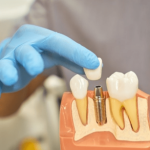Protein A resin is a widely used chromatography material that is used in the purification of antibodies. It is a type of affinity chromatography that is based on the specific interaction between Protein A and the Fc region of IgG molecules. This technique is used extensively in biotechnology and pharmaceutical industries for the production of monoclonal antibodies and other protein-based therapeutics.
Protein A resin is made up of small spherical beads that are coated with Protein A molecules. The beads are usually made of cross-linked agarose or dextran, and are highly porous to allow for the efficient binding of antibodies. When a protein mixture is applied to the resin, the antibodies in the mixture specifically bind to the Protein A molecules on the surface of the beads.
One of the advantages of Protein A resin is its high selectivity for IgG molecules. IgG antibodies are the most common type of antibody produced by the human immune system and are widely used in therapeutics. Protein A has a high affinity for the Fc region of IgG molecules, which allows for the efficient capture of these molecules from a protein mixture. The specificity of Protein A for IgG molecules also allows for the removal of other impurities from the protein mixture, such as other antibody classes and serum proteins.
The use of Protein A resin in antibody purification has several advantages over other purification techniques. For example, the resin can be used at high flow rates, which allows for the rapid purification of large amounts of antibodies. The high selectivity of Protein A resin also reduces the need for multiple purification steps, which can save time and reduce the cost of production.
Protein A resin can also be used in combination with other chromatography techniques to further purify antibodies. For example, ion exchange chromatography can be used to remove charged impurities from the protein mixture, followed by Protein A chromatography to specifically capture the IgG molecules. This two-step process can result in highly pure antibodies with low levels of impurities.
In addition to its use in antibody purification, Protein A resin can also be used in the detection and quantification of IgG molecules. The resin can be used as a solid support in enzyme-linked immunosorbent assays (ELISAs) to specifically capture IgG molecules and detect their presence in a sample. The use of Protein A resin in ELISAs can increase the sensitivity and specificity of the assay, and reduce the amount of non-specific binding.
In summary, Protein A resin is a highly efficient and specific material that is widely used in the purification of antibodies. Its high selectivity for IgG molecules, combined with its ability to be used at high flow rates, make it a valuable tool in the production of protein-based therapeutics. Additionally, its use in combination with other chromatography techniques can result in highly pure antibodies with low levels of impurities. Its use in detection and quantification assays further highlights the versatility of this material in the field of biotechnology.
One of the challenges associated with the use of Protein A resin is its high cost. The production of Protein A resin requires specialized equipment and expertise, which can increase the cost of the resin. Additionally, the resin can only be used for the purification of IgG molecules, which limits its versatility compared to other chromatography materials.
To address this challenge, researchers have developed alternative affinity chromatography materials, such as Protein G and Protein L, which also bind to the Fc region of antibodies, but have different selectivity profiles compared to Protein A. These alternative materials can be used in combination with Protein A resin to further purify antibodies or as a substitute for Protein A in certain applications.
Despite its high cost, Protein A resin remains a valuable tool in the production of protein-based therapeutics. The efficiency and specificity of this material make it an essential step in the purification process for many therapeutic antibodies. Advances in protein engineering and the development of new chromatography materials may lead to the production of more cost-effective and versatile purification methods in the future.
In conclusion, Protein A resin is a crucial tool in the purification of antibodies, widely used in biotechnology and pharmaceutical industries. Its high selectivity and efficiency in capturing IgG molecules allow for the rapid production of highly pure antibodies, essential in the production of protein-based therapeutics. Despite its high cost, the development of alternative affinity chromatography materials and advances in protein engineering are expected to enhance the efficiency and cost-effectiveness of antibody purification processes in the future.
Protein A resin is also used in research settings for the purification of antibodies from biological samples. This is important in studies of immune responses to infections or diseases, as well as in the development of diagnostic assays for infectious agents or autoantibodies.
In addition, Protein A resin can be used in the purification of antibody fragments such as Fab and F(ab’)2. These fragments can be generated by enzymatic cleavage of IgG molecules, and can be used in a variety of applications such as imaging, targeting of therapeutics to specific tissues or cells, and in the development of biosensors.
Protein A resin is also used in the manufacturing of biosimilars. Biosimilars are biological products that are highly similar to an already approved biological product, with no clinically meaningful differences in safety, purity, and potency. Protein A resin is used to purify the biosimilar product in the same way as the original biological product, ensuring consistency and reproducibility.
Overall, Protein A resin is a versatile and valuable tool in the production of antibodies and antibody-based therapeutics. Its high selectivity and efficiency in capturing IgG molecules make it an essential step in the purification process, and its use in combination with other chromatography techniques can result in highly pure antibodies with low levels of impurities. While the cost of Protein A resin is a challenge, the development of alternative affinity chromatography materials and advances in protein engineering are expected to enhance the efficiency and cost-effectiveness of antibody purification processes in the future.
Also Read:
3D Printed Spinal Implants Market









